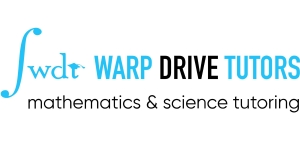High School Physics, Basic Course
All of our tutors are experienced teachers at highly regarded, competitive schools, who have taught their subjects extensively and have received excellent student evaluations throughout their careers.
Some basics:
Algebra based physics tends to get offered as two tracks; either Basic Physics or non-calculus based AP® Physics. This page is about the basic course. Non-calculus based AP® Physics, previously designated as AP Physics B, is often referred to as “Honors Physics” and is a more rigorous option than the basic course, although it only requires algebra as a prerequisite. In 2014 (or thereabouts), The College Board® split the AP Physics B test into AP Physics 1 and AP Physics 2. They are recommending the course be taught as a two year sequence, but it is up to the individual school as to whether to do so, or keep it as a one year course. Will your school also make it a two year course? That depends on the school, but many have indeed done so.
Will this course prepare you for the Science section of the ACT®?
Yes! Provided your particular course covers a sufficient breadth of topics, and you have generally mastered those topics, you are prepared for ACT Science.
Topics covered will include:
- Kinematic equations, projectile motion and vectors in two dimensions
- Newton’s Laws and their application to force body diagrams
- Momentum and impulse
- Work, energy and power
- Basic thermodynamics
- Waves and sound
- Electricity and magnetism, including circuits, induced currents, and magnetic flux
See our blog, How to effectively study for HS Chemistry and Physics
Subjects covered in Basic Physics will vary from year to year
Subjects covered in Basic Physics will vary from year to year, but they always include the above. Additional subjects that the AP® Physics course covers will include a more in depth look at thermodynamics and magnetism, and some nuclear physics.
Areas that cause problems:
All of it! Get help early, because this course (more than any other science course) will build sequentially as you go through the year. In chemistry and biology you switch topics every so often, and so if you are lost with electron configurations you can still understand the next week’s topic, which might be equilibrium. This is not so with physics! Physics requires that you understand the material from week to week, all year long. If you are lost with vectors in October, you are going to be lost in February, as well.
Can we help?
Of course we can! Physics is a subject that is best learned by doing problems. Interact with one of our teachers, who can give you a bunch of problems (very much like what you are doing in class), and patiently go through them with you step by step.
AP® and the College Board® are trademarks registered and/or owned by the College Board, which was not involved in the production of, and does not endorse, Warp Drive Tutors.
